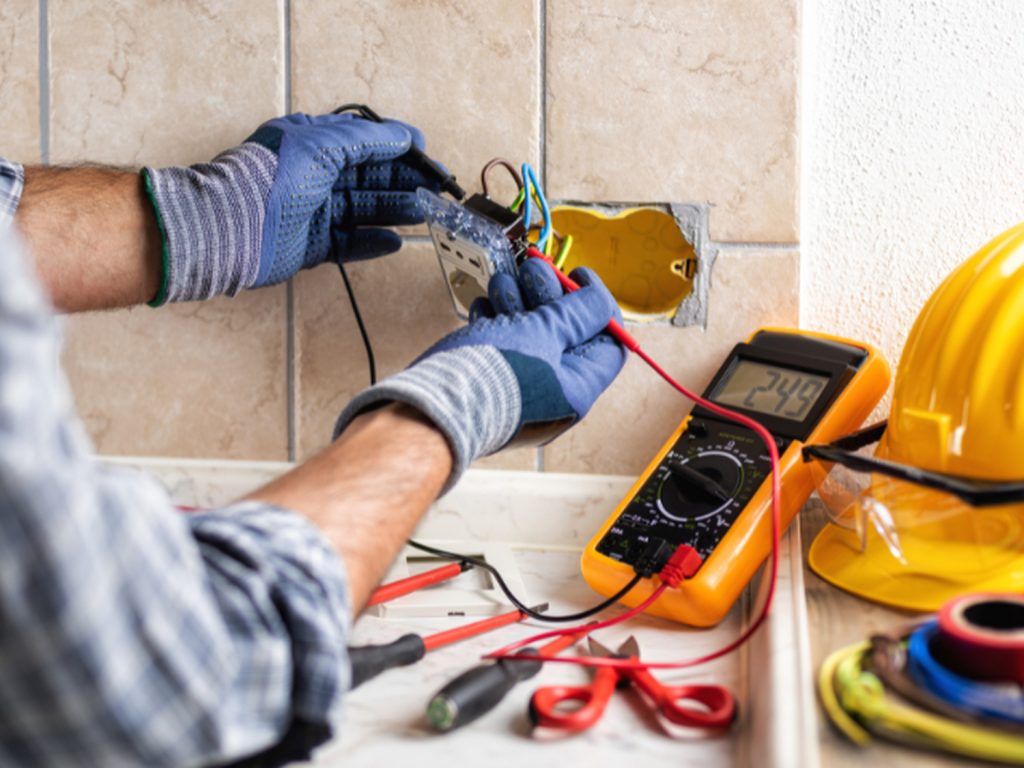Every modern home is powered by electricity, which makes our lives more convenient and comfortable. If not properly managed, electrical systems can cause serious problems, such as fires, electric shocks and expensive damage. Electrical systems are well understood by electricians, who can often spot problems that could compromise safety. Here are ten electrical safety tips that experts recommend to help keep homeowners safe. They have been elaborated on in order to ensure your home is protected and working optimally.
First and foremost, schedule regular electrical inspections. Your home’s electrical system needs to be checked regularly, just like your car. A licensed electrician will be able to identify any potential hazards such as aging wiring or overloading circuits. This can help prevent serious problems. It is especially important for older homes that may still have outdated wiring which does not meet safety standards. Inspections can be a proactive method to detect problems such as corrosion, damaged insulation, and loose connections.
Avoid overloading circuits is another important tip. Overloading your electrical system by plugging in too many appliances at once can lead to fires and overheating. Understanding which appliances are on each circuit and spreading them out can help maintain safety.
Electrical contractors also stress the importance of installing Ground Fault Circuit Interrupters (GFCIs). In areas that are prone to moisture, such as kitchens, bathrooms and garages. The GFCI is designed to shut off the power as soon as it detects a fault. This could be a current flowing through water, or even a person. These devices are designed to save lives by reducing the risk of electric shock when wet. The “test” button and the “reset” button on the outlet should be used to test GFCIs every month.
Replace cords and outlets damaged immediately. Stop using the outlet or cord if you see frayed wires. If there is exposed copper or scorched outlets then call an electrician. Damaged outlets and cords are a leading cause of electric shocks and house fires. It may seem harmless to “just use an extension cord one more time” but the risk isn’t worth it. Always choose safety over convenience.
Electrical professionals also warn homeowners not to do any major electrical work without being licensed professionals. Although changing a lightbulb can be done safely, other tasks such as rewiring your home, installing new outlets or modifying the breaker box are best left to certified electricians. Electrical projects that are done by yourself can not only be dangerous, but they may also invalidate your insurance policy and cause serious code violations. You should always leave complicated electrical projects to professionals.
Childproof Your Home if You Have Young Children. Outlets are usually at eye-level for children, who are naturally curious. You can prevent accidents by installing outlet covers or tamper resistant outlets. Teach older children about the dangers associated with sticking objects in sockets and using electrical appliances around water.
Install surge protectors. This is especially important for expensive electronic devices like computers, TVs, and consoles. Power surges are possible during thunderstorms and when large appliances switch on and off. Surge protectors absorb excess voltage to protect your equipment. Installing surge protectors at the panel of your whole-house can offer you even more protection.
Electrical contractors recommend upgrading the electrical panel when your home is older than 25-30 or you trip breakers frequently. Air conditioners, home office gadgets and kitchen gadgets are all contributing to the increased electricity consumption in modern homes. A panel that is outdated may not be able to safely handle current demands. Upgrade your panel to increase capacity and make sure that your system is able to handle the current energy demand.
Install smoke detectors and CO alarms at the correct places, and test them on a regular basis. The best choice is to use hardwired detectors that have battery backups. They are more reliable than batteries-only units. Install them in the hallways, bedrooms and kitchens. Also, place them near fuel-burning appliances. These devices can provide vital early warnings in the event of an emergency.
Electricians in north shore Auckland recommend that homeowners educate their family members and themselves about electrical safety. Simple but effective techniques include knowing how to turn off the power at the breaker, understanding electrical problems (such as buzzing noises or flickering light), and having emergency contact numbers readily available. The risk of an accident is greatly reduced when everyone in the family knows these basic safety tips.
In Conclusion: Electrical safety is not a matter to be taken lightly. Electricity can make our lives easier and more enjoyable but it also poses serious risks if not properly managed. You can make your home safer by scheduling regular inspections. Avoid overloads. Install GFCIs. Educate your family. Consult a licensed electrical contractor for any concerns or upgrades. This will ensure that your electrical system is operating safely and efficiently. These above ten tips from experts can help you avoid potential dangers and ensure your family’s safety.






